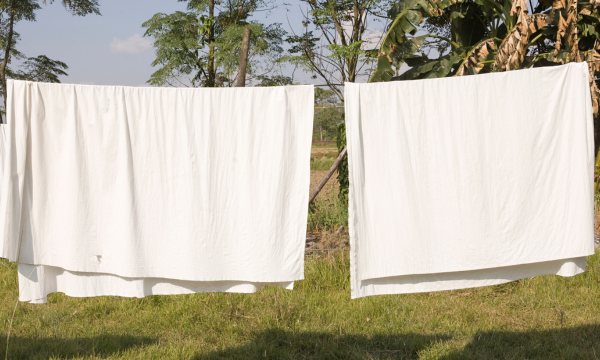How Often Should You Wash Your Sheets?

The Importance of Clean Bedding
When it comes to maintaining a clean and healthy living environment, one aspect that often gets overlooked is the frequency with which we wash our bed sheets. So, how often should you wash your sheets? The general recommendation is to wash your sheets at least once a week or, at the very least, every two weeks. This routine helps remove dead skin cells, sweat, and dust mites that can accumulate quickly. However, the frequency can vary based on factors such as climate and personal preferences.
Climate Considerations in Australia
Australia's diverse climate means that there is no one-size-fits-all answer to the question of how often to wash your sheets. The climate can vary from the tropical conditions of Queensland to the temperate zones of Victoria and the arid regions of Western Australia. These climate variations play a crucial role in determining how quickly your sheets accumulate dirt, sweat, and allergens.
In tropical areas like Queensland, where humidity is high and nights can be hot and sweaty, you may find it necessary to change your sheets more frequently. On the other hand, in cooler and drier regions like South Australia, you might get away with a more extended interval between washes.
General Guidelines
While the climate is a significant factor, there are general guidelines that apply regardless of where you live in Australia:
Weekly or Bi-Weekly:
Most experts recommend washing your sheets at least once a week or, at the very least, every two weeks. This regular washing schedule helps remove dead skin cells, sweat, and dust mites that can accumulate quickly.
Change More Often If...:
Consider washing your sheets more frequently if you sweat heavily at night, share your bed with pets, or have allergies. All these factors can contribute to a faster buildup of dirt and allergens.
Rotate Your Linens:
To extend the lifespan of your sheets and maintain their quality, it's a good idea to have multiple sets of sheets and rotate them regularly. This way, you can reduce the wear and tear on any one set.
Maintaining Your Bedding
To ensure that your bedding stays fresh and clean, it's essential to follow some best practices:
Use Pillow and Mattress Protectors:
These protectors act as an extra barrier between you and your mattress and pillows, preventing sweat, dust, and stains from seeping into the bedding. They are easily washable, which can help extend the time between washing your sheets.
Follow Care Instructions:
Always follow the care instructions provided by the manufacturer of your sheets. Overwashing, using harsh detergents, or improper drying can lead to premature wear and tear.
Vacuum and Air Out:
Periodically vacuuming your mattress and letting your bedding air out in the sun can help eliminate dust mites and oudors, especially in humid climates.
The Benefits of Regular Sheet Washing
Maintaining a routine of washing your sheets has several significant benefits:
Better Sleep:
Clean, fresh sheets can lead to a better night's sleep. Who doesn't love the feeling of sliding into a clean, crisp bed?
Allergen Reduction:
Frequent washing helps eliminate dust mites, a common allergen, making it easier for allergy sufferers to breathe comfortably at night.
Longer Sheet Lifespan:
Proper care and regular washing can extend the life of your sheets, saving you money in the long run.
Hygiene:
Regular washing removes sweat, skin cells, and other contaminants, ensuring your bed is a clean and healthy place to sleep.
In conclusion, the frequency with which you should wash your sheets depends on various factors, including your local climate and personal preferences. However, as a general rule, a weekly or bi-weekly washing schedule is recommended to maintain a clean and healthy sleeping environment. By following this routine and implementing good bedding practices, you can ensure that your sheets remain comfortable and fresh, contributing to a good night's sleep and overall well-being.